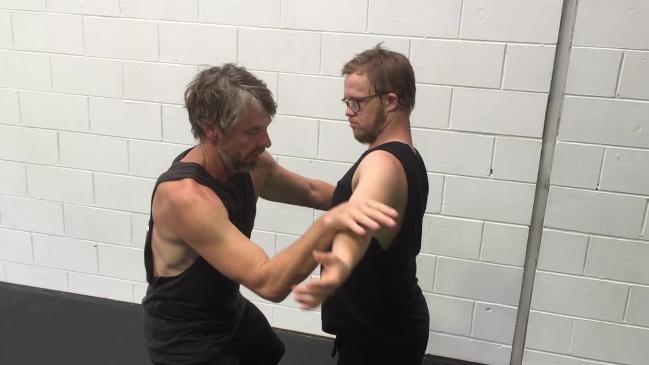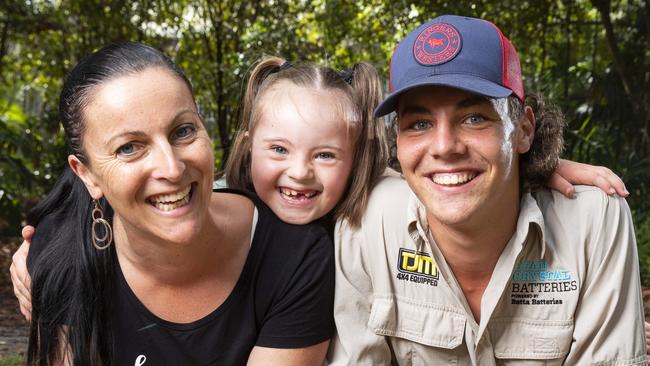Siblings of kids with intellectual disabilities show more empathy and are highly protective
They may sometimes feel like the “non-special” ones, but new research shows brothers and sisters of children with disabilities have more empathy and closer bonds than other siblings.

QLD News
Don't miss out on the headlines from QLD News. Followed categories will be added to My News.
THE brothers and sisters of disabled children can feel like the “non-special” ones who take a back seat to the needs of their siblings but despite the challenges new research shows that these kids develop into super siblings and extraordinary humans.
Researchers have found the siblings are highly protective and have closer bonds than other siblings.
Titans players Ash Taylor, Brian Kelly surprise Gold Coast schoolboy with Down syndrome
Mother shares son’s story to raise awareness of Down syndrome
They were found to have more empathy and closeness and scored lower on conflict and rivalry than those with typically developing siblings.
Almost 200,000 children in Australia have an intellectual disability according to the latest data from the AIWH and many have brothers and sisters who are their biggest supporters.

Queensland’s Max and Tallara Kelly were nine and 12 when their little sister Josee was born with Down syndrome.
“They felt the full force of an ableist society,” mum Joelle Kelly told The Courier-Mail.
“At school they endured comments and insults using words associated with an intellectual disability, as well as direct comments about their sister and her disability.
“In the community random people in the supermarket would focus solely on their newborn sister and how ‘special’ she was and not acknowledge them, so I jokingly called them the ‘non specials’.
“They have been taught to educate with kindness and to help expel the misconceptions surrounding the condition.”

Brother Max sums it up best: “The thing I find really hard about Josee having Down syndrome is that people think it’s a bad thing and can be insulting but nothing about Josee is hard.
“When I look at Josee I just see Josee. She’s my little sister; I love her, she’s annoying, she’s fun, she’s cute. No different to any other siblings. I don’t understand why people are sorry when they look at her, at us.
The international research from Tel Aviv University and University of Haifa has been published in the journal Research in Developmental Disabilities
“We can argue that having a family member with a disability makes the rest of the family, including typically developing children, more attentive to the needs of others,” co-author Professor Anat Zaidman-Zait said.



